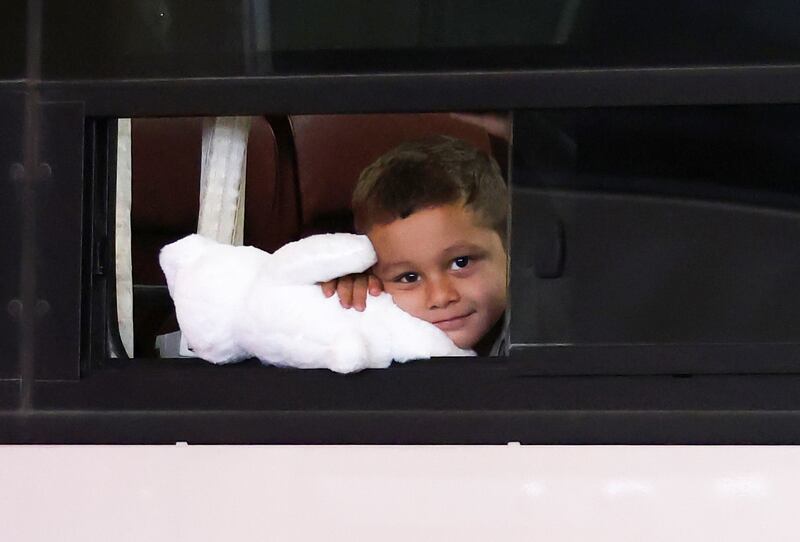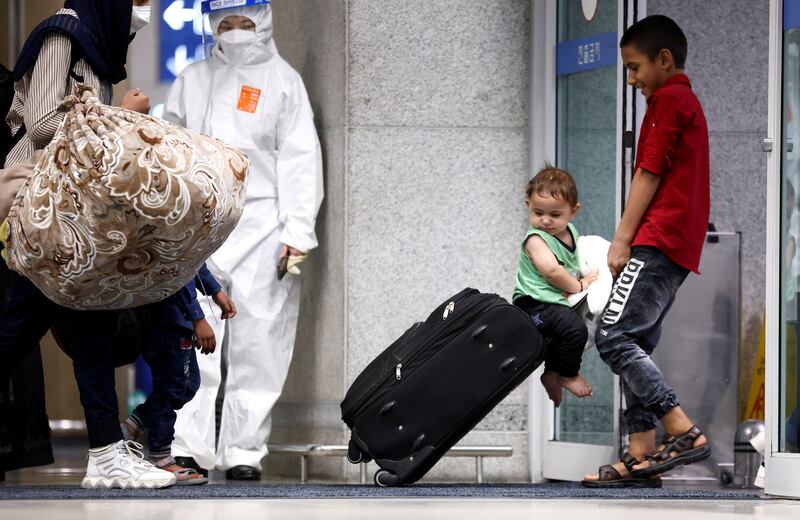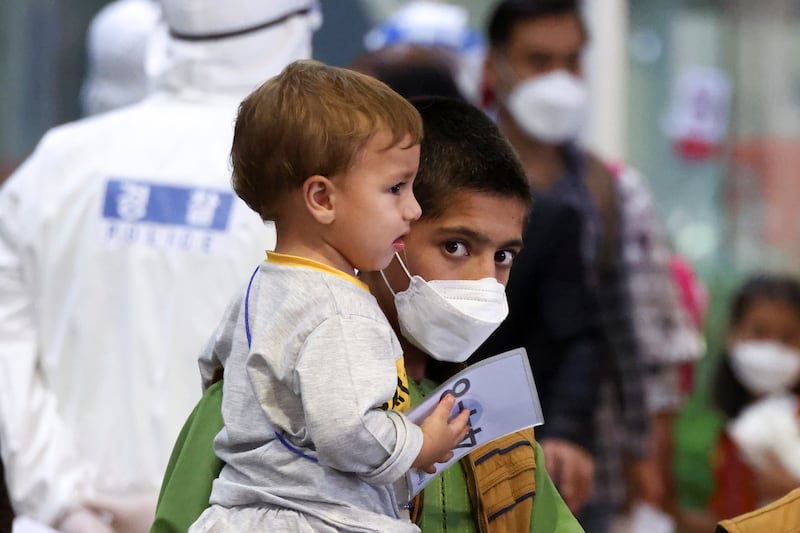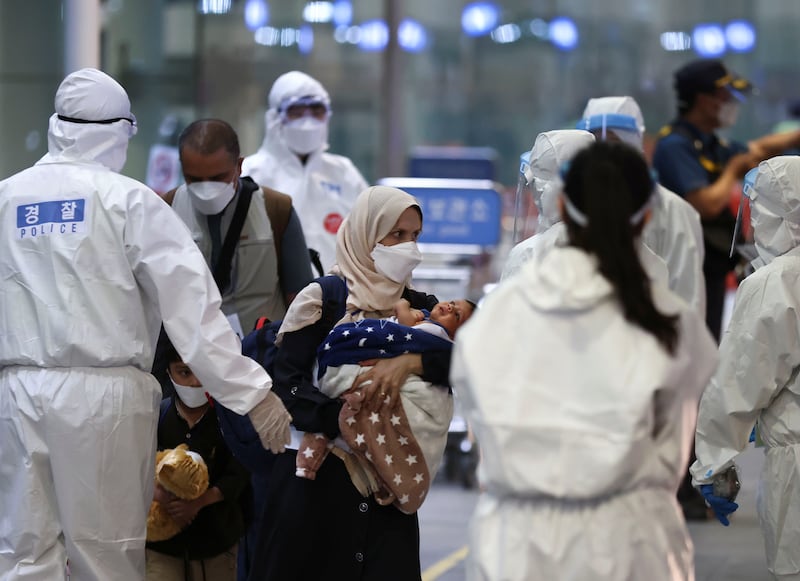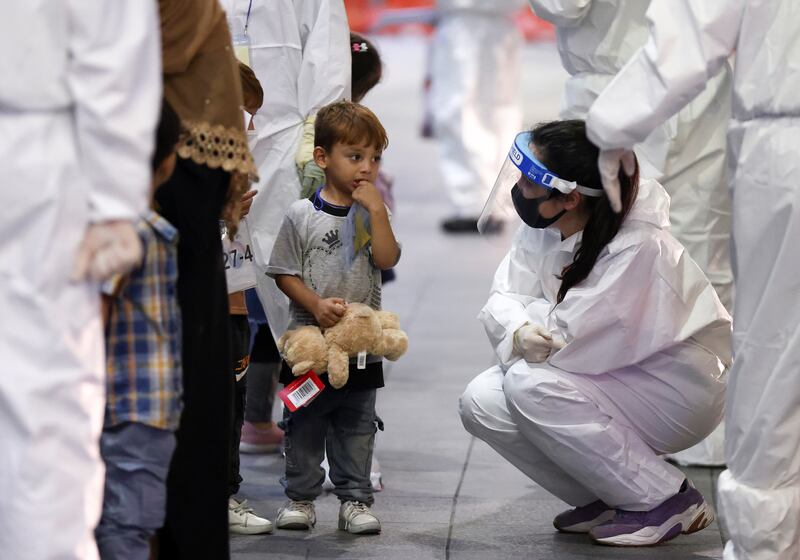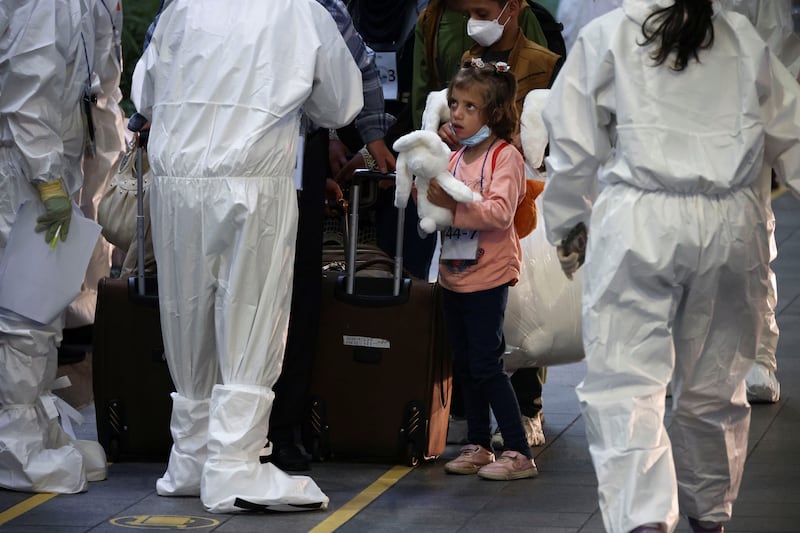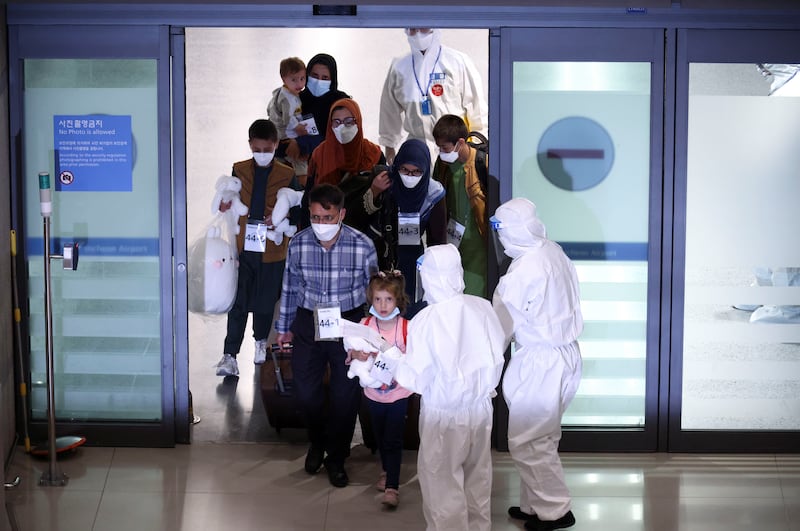Follow the latest updates on Afghanistan here
Pastor John Paik watched as five grey buses rolled down a rain-slicked street in the South Korean city of Jincheon, their hazard lights blinking in an offbeat pattern as they came to a stop.
The convoy had a police escort and several journalists looked on from under umbrellas and through camera lenses as a single hand reached out of a bus window and waved.
“I saw a child, she put her hand up — I was almost weeping. My heart was moving,” said Mr Paik, who leads a small church in the city.
Mr Paik was part of a small welcome committee receiving some 378 Afghans who had recently fled their home country as the Taliban took power. Their new temporary home will be a government site where they will go through quarantine and receive an introduction to life in South Korea.
In anticipation of their arrival, Mr Paik made a sign that read: “Welcome to Korea, Afghanistan brothers and sisters. We love all of you.”
But Mr Paik’s warm greeting for the new arrivals was unusual in South Korea, where significant stigma and mistrust hangs over refugees — particularly Muslims.
More than half the country’s population is against accepting refugees, a report released in December 2020 by the UN refugee agency showed.
Faced with a new influx of refugees from Afghanistan — many of whom helped Korean troops in the country — the South Korean government has attempted to rebrand the new arrivals, preferring to call them “persons of merit” in an effort to allay the public’s concerns.
“Frankly speaking, I do not like Muslims, especially regarding religion. Since they are sometimes dangerous, I am concerned that they can be a threat to our country,” Park Chun-hyeon, a local restaurant owner, said about the Afghans.
In 2018, South Korea erupted into widespread protests when 550 Yemeni refugees arrived at the holiday island of Jeju.
Fears of terrorism, crime and issues with culture and religion were often highlighted as reasons why South Korea couldn’t possibly accept refugees.
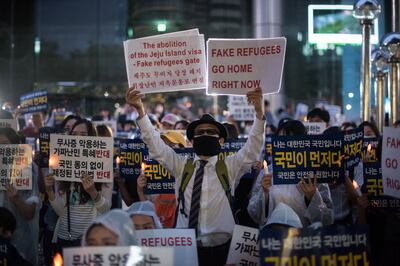
But with a new wave of arrivals from Afghanistan, that picture seems to have changed.
“I welcome the Afghanistan refugees. There are not many Afghan refugees who have entered Korea until now and since they assisted our country during hardships, I believe that we should be prepared to accept them,” Mr Park said from his restaurant.
The government went to great lengths to point out that the Afghans who came to Jincheon had assisted Korea’s mission in Afghanistan by either working at the embassy, the Korean-run hospital or the job training centre.
It appears to have worked. Levels of support for the Afghans is stronger than in the past.
About seven out of 10 South Koreans support giving long-term visas to the newly arrived Afghans, a recent poll from Realmeter showed.
Even the operation to airlift the Afghans out of Kabul was named “Operation Miracle” and images of Korean troops caring for newborns about to board military transport jets helped win over the public.
Given the uproar that refugee arrivals have recently created in South Korea, and with an election on the horizon, the government needs the resettlement of Afghans to be a success.
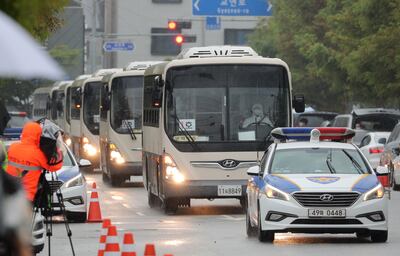
“I have serious doubts that Korean politicians and political parties would rekindle this issue of refugees, especially before the presidential election next year,” said Kwon Hyeok-yong, a professor of political science at Korea University.
Public opinion on the refugee issue, he said, remains “quite polarised”.
There are signs, though, that sentiments in South Korea are slowly changing.
UNHCR surveys have shown that support for accepting refugees has risen among Koreans since the Yemenis arrived.
In 2018, only 24 per cent of Koreans were in favour of accepting refugees. But that figure rose to 33 per cent in 2020.
South Korean politicians have also seen that accepting refugees makes the country look good in the eyes of its peers.
“The success of the transfer operation and the open and inclusive stance of our people are being highly recognised by the international community,” South Korean President Moon Jae-in said in one of his weekly meetings, Yonhap News reported.
Nearly 70 years since the Korean War devastated the peninsula, South Korea has transformed from a country that produced refugees to one of the world’s biggest economies.
There is now a belief that the country should now be helping others.
“Korea also went through a lot of difficulties during the Korean War,” said Mr Paik, the pastor.
As South Korea has developed, he said, it must now help others who are in need.
